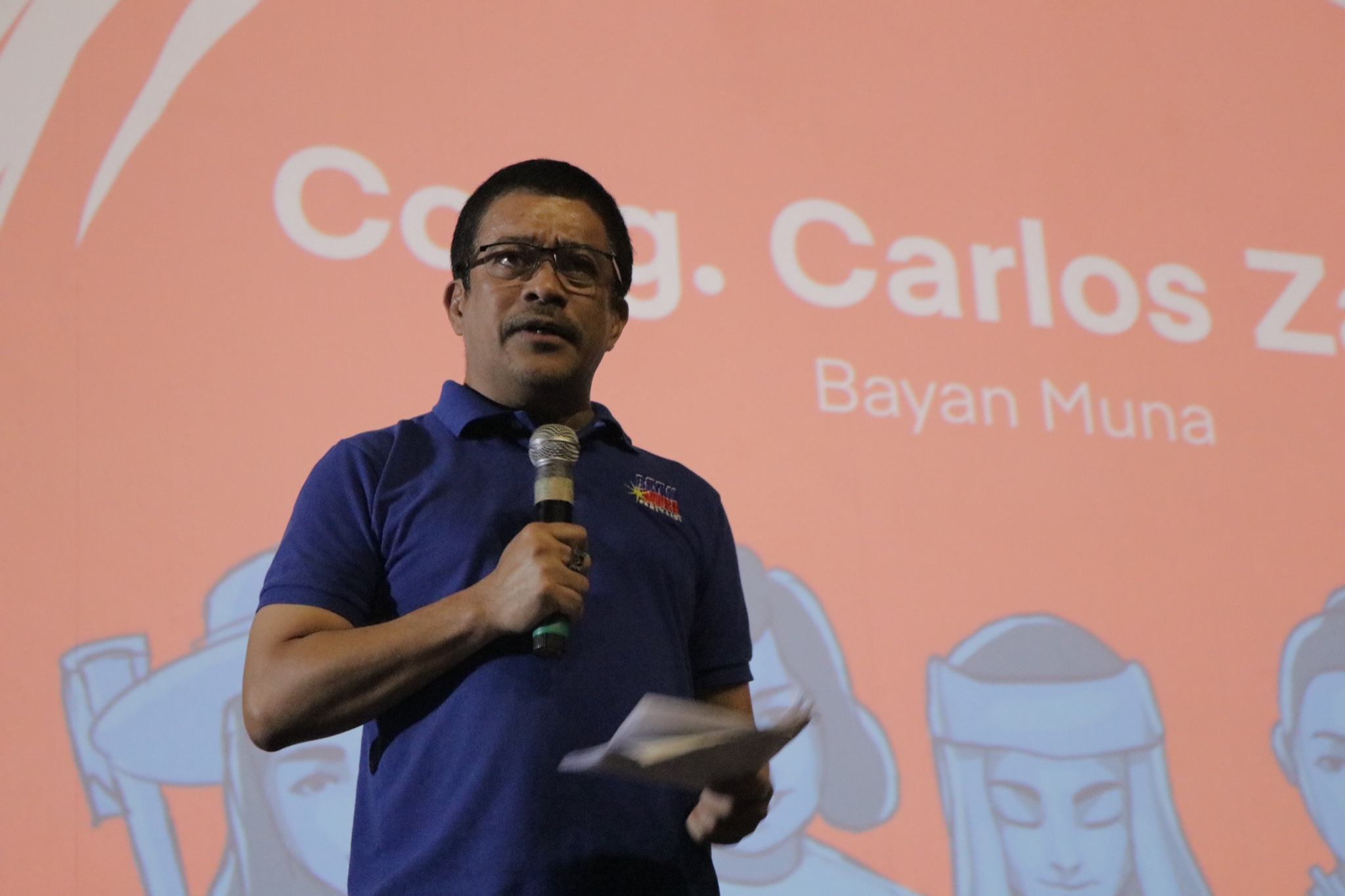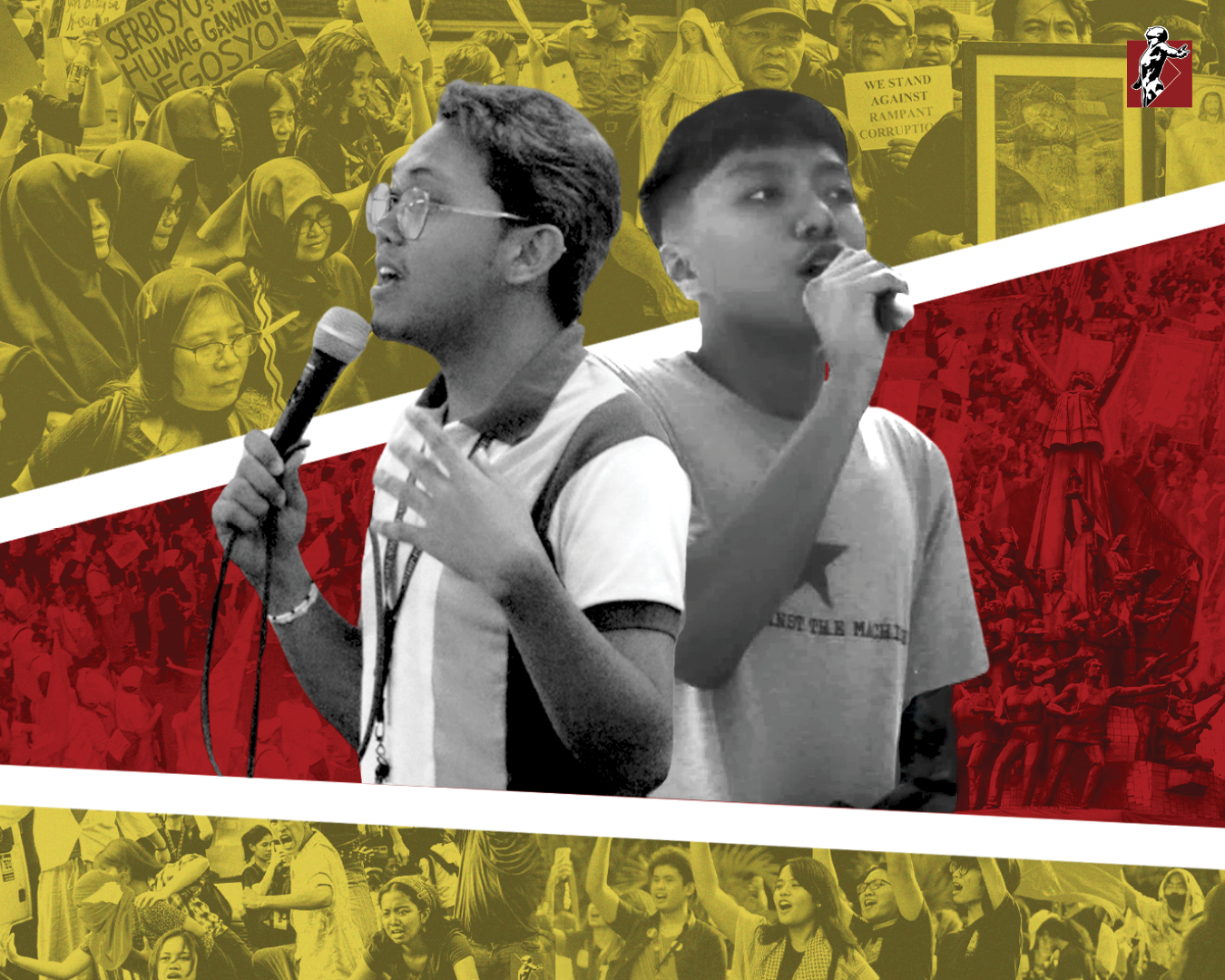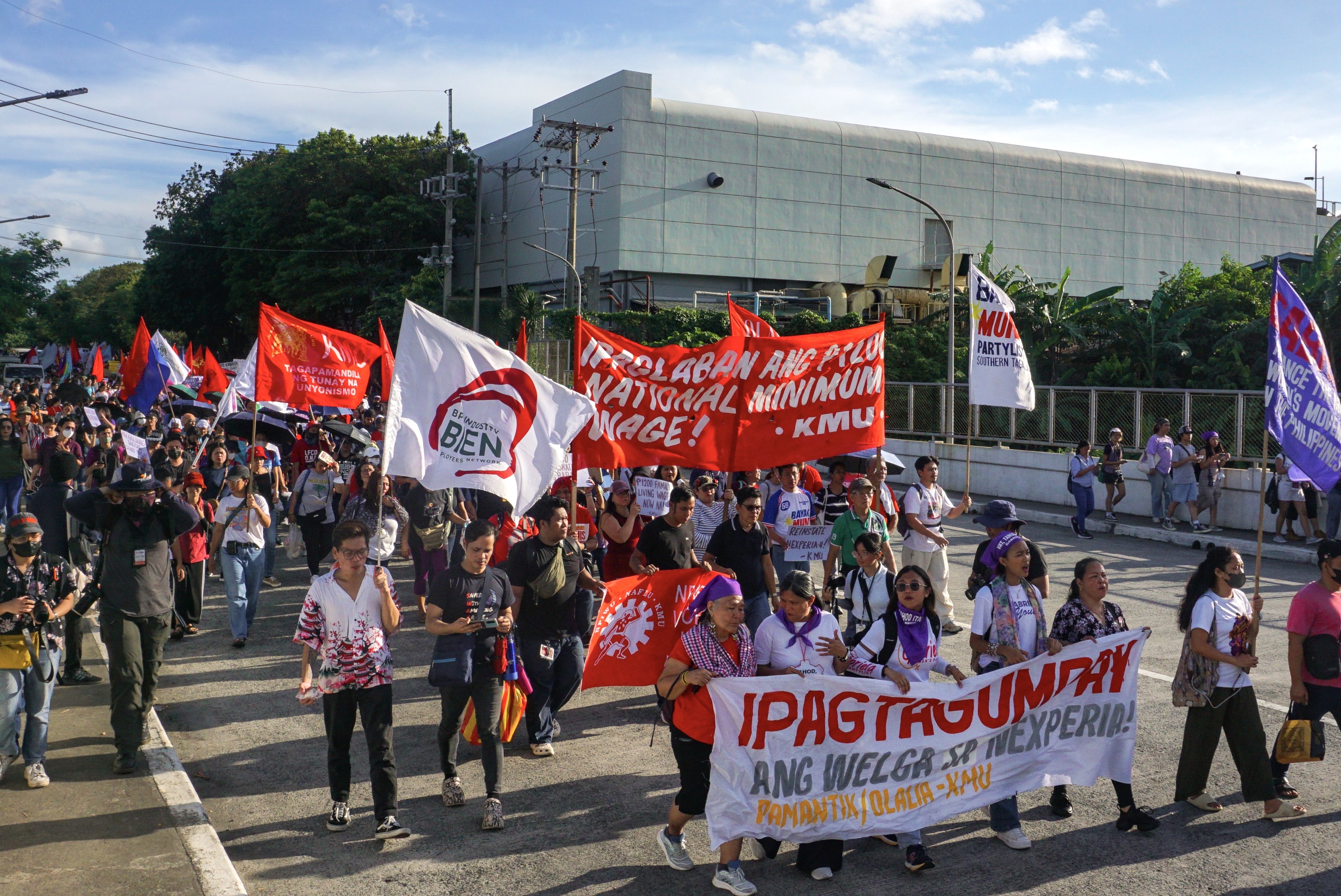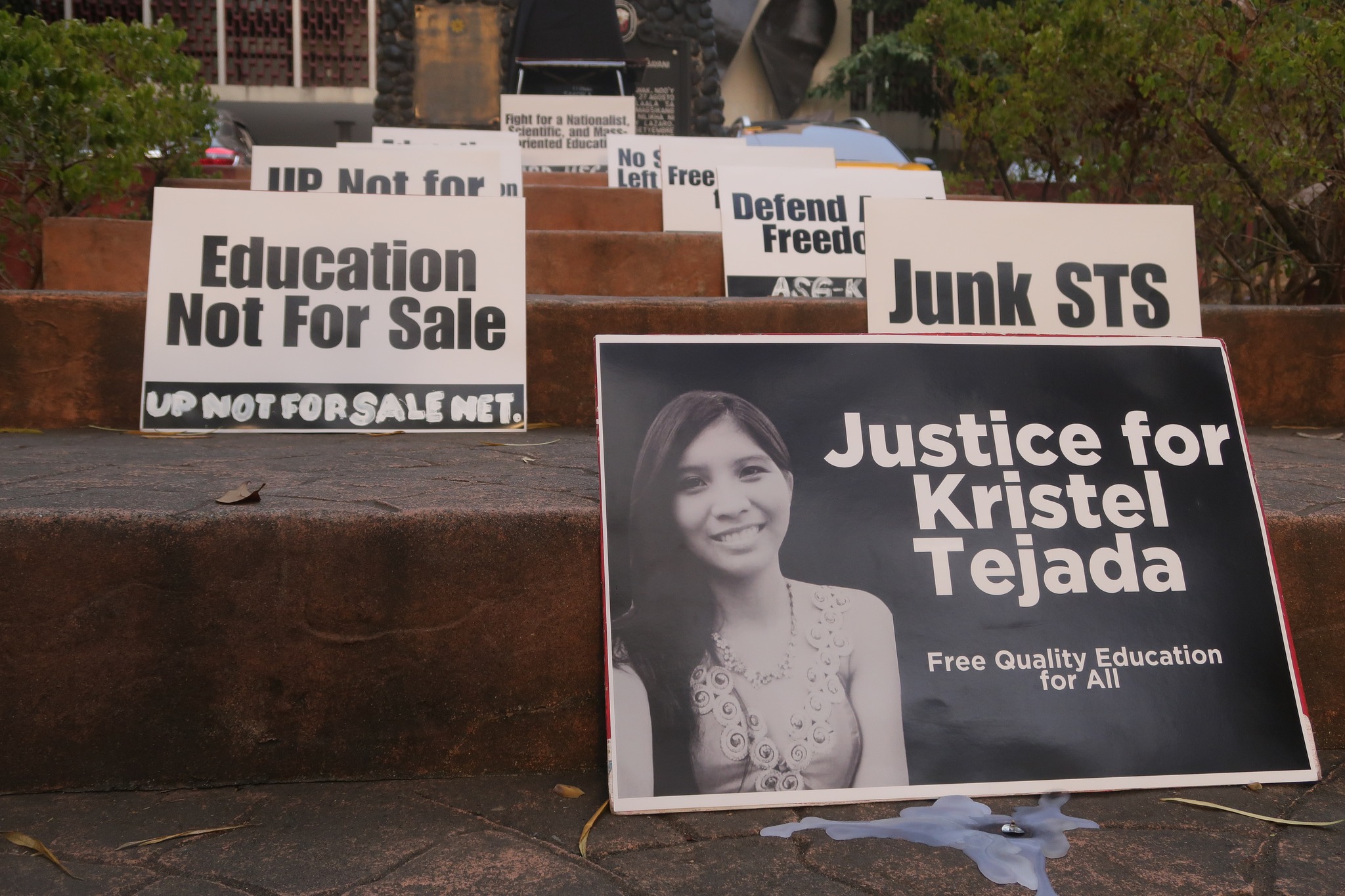Being a legislator is no easy job—especially so if you are known for having critical positions on the sitting administration’s policies. Former Bayan Muna Rep. Carlos Isagani Zarate knew this, yet he still took up the role.
For nine years, Zarate’s work would start the moment he wakes up, checking the news and reviewing policy briefs. At Batasang Pambansa, he would convene his staff, attend committee hearings, and plenary sessions—during which he, at times, got the ire of his fellow lawmakers, or heard whatever new accusation the regime threw at him. Then, instead of clocking out from work at 5 p.m., he spent late nights meeting constituents.
Bracing for his life after his stint in the House of Representatives, the former solon spoke to me with a firm tone of humility and competence, distant from the so-called “hypocrisy” and “chauvinism” that the Duterte administration antagonized him for. If the passionate lilt to Zarate’s voice was any giveaway, it was that his call for public service was far from over. To him, it was never contingent on his position as party-list representative, but rather a firm continuation of his commitment to activism.
In the actuality of a Marcos administration, the space for progressive politicians in the halls of Batasang Pambansa continues to shrink. Nevertheless, the seasoned lawmaker refuses to despair—the fight is not just within the halls of Congress.
Fated Coincidences
Zarate’s activism started with an encounter brought by his inquisitiveness as a student journalist. He was in Bayombong, Nueva Vizcaya joining a student press competition, when he overheard a conversation between two clergymen about the killing of Zacarias Agatep, a priest who spoke out against local monopolies. It was at this moment that he was faced with the reality of Martial Law. Fueled with curiosity, he started to piece together the string of killings and arrests, and followed the stories of Ninoy Aquino, Dante Buscayno, and other activists of the time.
Amid the intimidating state policy, he persisted as a student journalist and pushed to revive campus publications in Notre Dame of Dadiangas College. It is not difficult to see that his hard-hitting stances in Congress would hail from these early endeavors for truth and justice.
Zarate consistently excelled in school, but he did not want to limit his learnings to the four corners of a classroom. “Major ko ang activism, minor in accountancy,” he laughed while telling me how this had molded his critical nature and views on public service.
The former lawmaker had planned to enter the seminary at first, but his encounter with Vicente Mirabueno brought him to a new direction. Mirabueno was the lawyer who defended him from expulsion for his activism which, ultimately, allowed him to graduate college. In 1988, the lawyer, who was then a coordinator of the Free Legal Assistance Group, was assassinated in General Santos.
“Na-inspire ako sa mga public interest lawyers at human rights lawyers during the time of Marcos dahil sinakripisyo nila yung career nila, yung buhay nila para sa iba,” said Zarate. He spoke with no tinge of regret as public service indeed became his alternate vocation.
Ceaseless Strides for Change
Zarate went above and beyond the conventional confines of a lawmaker. His typical day of committee meetings was accompanied with on-the-ground community consultations and participation in people’s protests. For him, legislation is only one of the many arenas where the people can actively call for change.
“There are really moments that money cannot buy, [at yun] yung nasa piling ka ng masa dahil appreciated nila yung ginagawa mo—na dinadala mo yung boses at issues nila sa loob at labas ng Kongreso kahit na minsan sabihin ng iba na napaka-suntok sa buwan nito,” he said with a wide smile. Zarate was able to serve his people with a critical mind and an earnest heart, but this made him a fine target of the administration’s witch hunts.
Among his career highlights was the abolition of the pork barrel system where he, along with then Bayan Muna party-list Rep. Neri Colmenares, successfully filed a petition against the disbursement acceleration program. Their action was met with hostility from fellow politicians. He recalls one instance when a senior legislator tempted him into trying pork rather than dismissing it early on. Zarate apologized and told him, “Sorry sir, ayaw ko sa pork kasi vegetarian ako eh.”
And on the day the Priority Development Assistance Fund (PDAF) was struck down, the session hall was noticeably despondent. “Makikita mo talaga na marami sa kanila doon, if not all of them, nandito lang para sa PDAF. Yun ang main concern nila.”
In the nine years that he spent in Congress, the former legislator had 286 principally authored bills, each championing a different facet of the people’s agenda. These laws include the Mental Health Act and the Masustansyang Mag-Nanay Act, both interventions for their titular areas in healthcare. The solon believes that many of the bills passed by Congress are supplementary to the major calls for irrigation, mining, and agrarian reform which are watershed bills consistently supported by the Makabayan Coalition.
For almost a decade in legislative work, Zarate constantly contended with traditional politicians whose interests are threatened by the pro-people bills that his coalition forwards. Often singled out by Duterte, Zarate was no stranger to disparaging propaganda and false accusations linking him with the communist rebels. Up until the day of the elections, fake information on the disqualification of several opposition candidates and parties circulated across the country.
Now with Ferdinand Marcos Jr. set on continuing his father’s legacy, the former lawmaker told me, “Talagang we have to brace ourselves na mayroong malawakan at all-out assault doon sa karapatang pantao at even social justice, kaya on all fronts iyan.”
Moving Forward
Zarate’s spirited character is a stark contrast to the atrocities he had seen during Marcos Sr.’s regime. Today, he is witnessing the political comeback of a family that showed no remorse for the lives it had ruined 36 years ago. But this is no reason for hopelessness.
Zarate expects the intensification of human rights violations given the president’s intention to continue Duterte’s unfinished pursuits, especially in counterinsurgency and war on drugs. And without Bayan Muna in Congress for the first time in 20 years, there will be more legroom for repressive and anti-people policies carried by traditional politicians of the House supermajority.
“In all the administrations after Marcos [Sr.], tuloy-tuloy lang yung pag-iimplement nila ng neoliberal policies which, ultimately, failed to address yung problem of massive poverty,” he said. Much of this is attributed to the fact that the majority of elected representatives come from wealthy and dynastic political families. According to him, for as long as Congress remains a conservative institution, it will remain to be an obstacle for genuine representation and progressive policies.
Zarate emphasized the importance of remaining vigilant and active during these turbulent times; that while our system is riddled with institutional inequalities, pure reformism will not solve the root of the problem. It is through the vibrant mobilization of advocacy groups and mass initiatives that we can truly propel the government to act with accountability for the next six years and beyond.
“Ang mahalaga ngayon ay ang pagtatasa at pag-iipon muli ng lakas, ang paghandaan ang mga susunod na laban sa administrasyong ito, at we take pride na mayroon pa rin tayong tatlong kinatawan sa Makabayan.” He added that the coalition will continue to be a fighting force for new politics, regardless of heightened attacks. Bayan Muna’s loss in the elections is not an end to fighting for the people’s agenda but rather, a wake-up call to those who still believe that an electoral victory is all that it takes to advance democracy.
Nearing the end of our talk, I asked Zarate what he intends to do now that he won’t be going to Congress anytime soon. “Unemployed ulit,” he laughed, “but employed by the people.” He will still go back to communities, lobby for bills, and maybe advise the Makabayan Bloc when needed. But instead of sitting in plenary sessions and committee meetings, he will return to defending the marginalized in courts. ●






